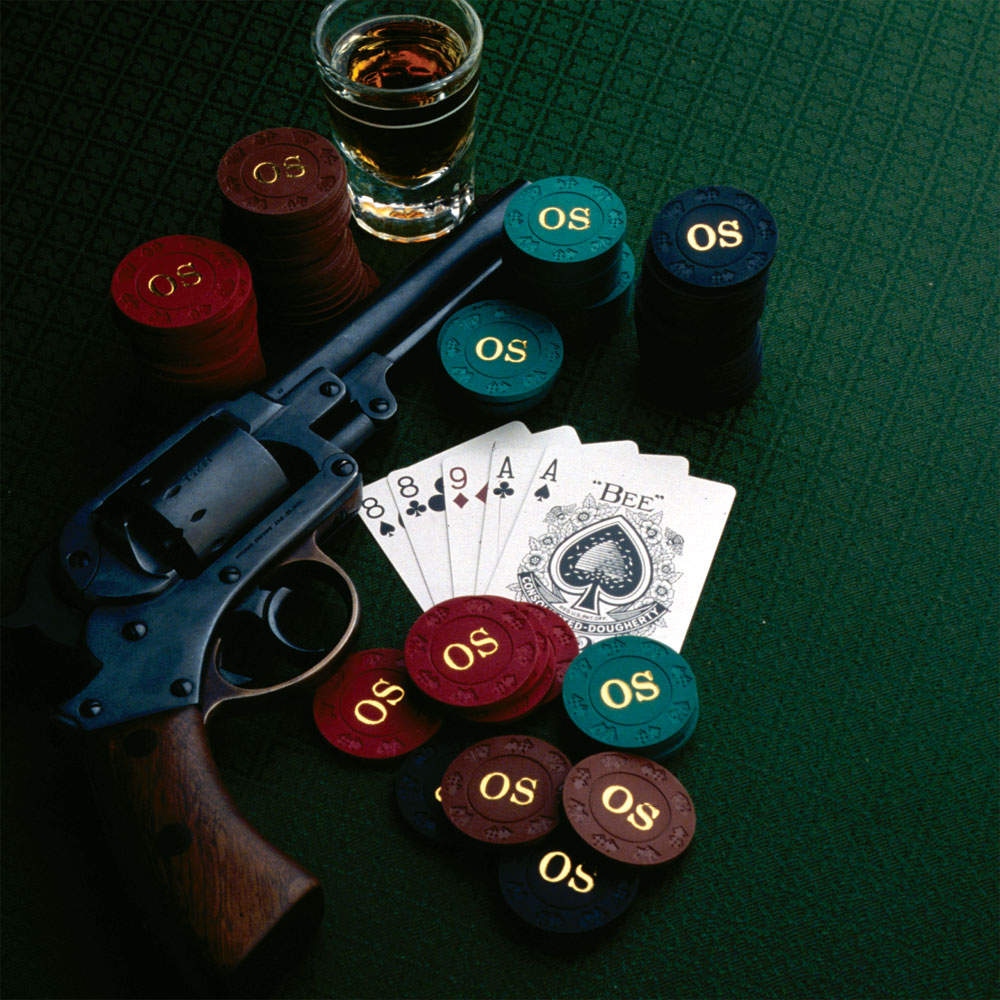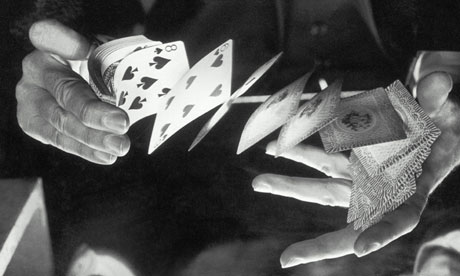Managing Partner at Dragonfly. Effective Altruist. Airbnb, Earn.com (acquired by Coinbase) alum. Writer. Former poker pro. Donate 33% of my income to charity.
more
I don’t tell people these days that I used to be a professional poker player. It seems like a weighty and cumbersome admission, one that always leads to the same tired conversation. The last time I played a hand of poker was well over a year ago. That life feels like an episode long behind me—an identity I’ve left behind.
And yet sometimes, in my dreams, I find myself playing poker again, multitabling 25/50 and 50/100 heads up matches, battling the regulars. Sometimes I am sitting in the Aria cardroom, staring down a backwards-capped grinder, tracking the movements of his eyes. And whenever I wake up from these dreams, it always takes me a moment to remember that poker is no longer part of me—that my life is entirely different now. How long will it be until my mind lets go of poker? Will it ever?
I had a conversation with a good friend of mine the other day, and he asked me: so now that you’re done playing poker, what do you think you took away from it?
Consider that.
What a fucking question, right?
I was a professional poker player for 5 years—from 16 till I was 21. How can I separate what I learned from poker from what I simply learned in the process of growing up?
Poker taught me a great deal. Poker was a maddening mistress, and yet it was also one of the wisest teachers a human could ask for. So I came up with the seven most valuable lessons that five years in the fray of poker taught me.
Every man takes the limits of his own field of vision for the limits of the world.
Arthur Schopenhauer
Why do games run at all? In every game of poker, there are winners and losers. And for the most part, people only play in games that they think are profitable. So in almost every poker game, there must be a loser who doesn’t know it. This used to puzzle me. How can so many people be deluded all at once? What’s stopping them from realizing their own incompetence? And what makes me different from those people?
Many will blame this on ego, but that falls short of capturing the more startling realization—your own perceptions of whether you’re winning or losing can never be fully trusted.
Perception is riddled with biases and illusions. Cognitive science, psychology, and neuroscience have demonstrated this again and again. The more we study it, the more we realize how fallible our perceptual apparatus truly is. I came to realize that I often saw what I wanted to see, that I involuntarily drew the same patterns over and over again—I realized that the fish isn’t always a fish, that the obvious play isn’t always so obvious, and how I can think I’m beating somebody who is, in fact, destroying me.
Poker is an industry that runs on delusion, and even though I was a pro, I knew that I was subject to the same forces as everyone else. So I learned to distance myself from my intuition, to carry my instincts with suspicion, and to always remind myself that what I thought was a sure thing… often wasn’t.
I am, indeed, a king, because I know how to rule myself.
Pietro Aretino
Poker taught me to control my emotions—or perhaps it’s better to say that poker “trained” me to control my emotions. In that sense, it’s not so much a lesson as it is a process one undergoes.

After playing enough poker, you learn that emotional responses are usually unnecessary and detrimental to your ends. Sometimes emotions are important and inevitable, no doubt, but the ability to separate oneself from one’s emotional backlash is essential to being a good poker player.
Enough hours at the grindstone, and your mind will become sharp like a blade, your emotions will get whittled away. Enough hands at the table, and after a while, you will learn how to be quiet—how to look the winner in the eye without flinching—how to take a loss, rack up your chips, and walk away from the table with grace.
Whether he likes it or not, a man’s character is stripped at the poker table; if the other players read him better than he does, he has only himself to blame. Unless he is both able and prepared to see himself as others do, flaws and all, he will be a loser in cards, as in life.
Anthony Holden
Although ego is what brought you into this game to begin with, it must be the first thing to go. In some sense, ego is unavoidable—we are not motivated by money so much as by the desire to improve, to get better, to be as good as we can be. Poker is inherently ego-driven. But, poker teaches you that you must sweep your ego out of the foreground. Ego can’t be on your mind. You can’t always want to win, and you can’t be better than everyone all the time. You’re going to lose—that’s the only way to become stronger.

Survey yourself. What are your failings? What are your weaknesses? What do other people know about you that you don’t? If you’re not prepared to face your own flaws, then you have no chance in the world of poker.
Poker teaches you how to lose, how to let things happen, how to learn from those who are better, sharper, and wiser than you are. Although you are driven by ego, when you’re sitting at a table you must surrender, you must be a knave, you must let your ship be blown about by the winds of luck. You are never in charge. Poker is in charge. And your job is to silence your ego, and listen to what poker is telling you.
The poker player learns that sometimes both science and common sense are wrong; that the bumblebee can fly; that, perhaps, one should never trust an expert; that there are more things in heaven and earth than are dreamt of by those with an academic bent.
David Mamet
Perhaps the very first lesson you learn coming into poker is this: just how amazingly full of shit everyone is.
Everyone who plays poker thinks they’re an expert and shares with you their cracked-out theories. Books, blogs, and forums everywhere are full of misinformation and downright stupidity. Almost everyone is wrong. And that means it’s up to you to seek out the truth.
In this way, poker taught me to argue, and not to take anyone’s word unless they could convince me otherwise. It taught me to poke holes in every argument anyone presented to me until I was sure it was ironclad.
One of the most memorable articulations of this for me was by Alexeimartov. He told me, “The best players don’t care what anyone else says is good or bad. They make bets that are supposed to be impossible, they fold hands that are supposed to be unfoldable, and they invent their own strategies. Make what you think is the best play, and leave it to the railbirds to squabble over the rest.”
The poker world is, after all, a marketplace of ideas—there are many strategies, many schemas, many languages out there to describe the game. But which is the best? In the end, it’s whatever works best. And it’s up to you to judge what works best, given the style and game you’re playing. It’s on you to figure it out—and you don’t get to take anyone else’s word for it.
Remember: that giants sleep too soundly; that witches are often betrayed by their appetites; dragons have one soft spot, somewhere, always; hearts can be well-hidden, and you can betray them with your tongue.
Neil Gaiman
This one came to me, as I suspect it does for most people, in bits and pieces over my career. We naturally don’t want to believe this one. We all worship our poker heroes; they represent what it means to be great. They exist high above us, beyond impeachment, like the heroes of the constellations. We resist letting go of this idealism.

I used to be this way with Prahlad Friedman. When I first started playing poker, I gushed over the epic battles between him and Green Plastic. I read with wide eyes the stories of his hyper-aggression, his perfectly sized overbets, his seemingly flawless timing. He was, to me, the perfect poker player, an impossible genius.
But it would not be until a couple of years later, when I faced him at 50/100NL, crushed him for 80k, and sat there by myself after he left the tables—it would not be until then that this lesson truly hit me. Everyone is predictable. Everyone has tells. Everyone is vulnerable. Even the best players in the world, with enough acuity and patience, can be pinioned and deconstructed.
I won’t go so far as to say it’s possible for you to beat anyone—obviously, you must attain the requisite understanding, skill, and ken first. But the point is this: everyone is fallible. Everyone can be overcome, somehow. You just have to figure out the how—and there is, rest assured, always a how.
The world is governed by chance. Randomness stalks us every day of our lives.
Paul Auster
To play poker is to trudge again and again through the storms of variance. It is perhaps the central contradiction of our lives as poker players—that we must somehow negotiate our way through a world that is utterly indifferent to us. How do we know that, when we lose, it is our fault or not? How do we know, when we win, if we’re actually good or just on a heater? Poker offers us no answers—it is incapable answering. Poker is an abyss, a mute god, a faceless smile.

So as a poker player, you learn to live in uncertainty. You learn how to settle into variance, how to find comfort within randomness. Because you are not in control, there is nothing to do but keep pushing through the winds of variance, to take your next hand, to play it well. Moving forward is all you have—and that is true in poker, as in life.
And finally . . .
In between goals is a thing called life, that has to be lived and enjoyed.
Sid Caesar
This lesson comes to many different people, on many different paths, for many different reasons. But the realization is always the same. There is no “there.” When you reach the top of the mountain, be it becoming a “pro,” or winning that tournament, or reaching Rail Heaven—nothing particularly happens. There’s nothing special up there. There is no moment of greatness, there is no crowning vindication. It is just another day of playing cards, followed by another, followed by another. Achieving a goal or a dream, more often than not, turns out to be empty—once you get there, now you’re “here.” Then what?
It is a realization that hits many people by surprise. It causes many to become possessed by boredom, ennui, depression. I’ve seen it far too often in successful poker players—I even saw it in myself. I became a millionaire by the time I was 19. I achieved goals I never imagined I’d reach, at a very young age. But once I’d done that, one I’d crested that mountain, I was left with one paralyzing thought: “what now?”

This lesson, I think, needn’t be a pessimistic one, because hidden within it is a simple, almost obvious truth—that life is not about the destination, but about the journey. There is no conclusion, no great prize at the end of anything. There is only the movement, the climbing, the rack and tumble of living. So why do we choose goals? Why do we have dreams? It is not for the goals themselves, or the endpoints we imagine—but it is, instead, to orient the process of our lives.
This is a lesson that I am only coming to understand now. We are, by our nature, forward-looking creatures. But the most meaningful life is one lived in the present, without regard for its finality. Buddhists say that “from the moment we are born, we are all racing toward death.” And yet, they also say, “he who abandons all hope rests content.” Just as life is not about death, a path is about not about where it ends. Its value lies in the infinitely many points in between.
What is learning? How does it work? How can we learn better? These questions might seem naïve on first glance. Learning is fundamental to how humans negotiate the world, and yet it feels strange and reductive to take it aside and interrogate it. But if you are a poker player, learning is an essential part of your vocation. To really improve at poker, it is imperative to optimize the process...
read more
The embryo of this post has been sitting on my desk for several weeks now. Originally, it was a frenzy of thoughts that I scribbled purely for myself, just to flush the words out. But after seeing it on my desk day after day, I finally decided to post it here. I apologize if this seems self-indulgent, but it seems to me the right thing to do. Several weeks ago...
read more